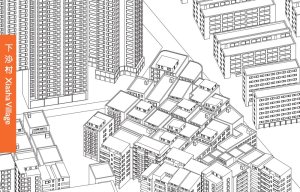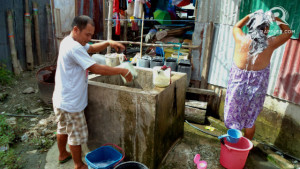Saskia Sassen ~ Who Owns Our Cities – And Why This Urban Takeover Should Concern Us All
 Does the massive foreign and national corporate buying of urban buildings and land that took off after the 2008 crisis signal an emergent new phase in major cities? From mid-2013 to mid-2014, corporate buying of existing properties exceeded $600bn (£395bn) in the top 100 recipient cities, and$1 trillion a year later – and this figure includes only major acquisitions (eg. a minimum of $5m in the case of New York City).
Does the massive foreign and national corporate buying of urban buildings and land that took off after the 2008 crisis signal an emergent new phase in major cities? From mid-2013 to mid-2014, corporate buying of existing properties exceeded $600bn (£395bn) in the top 100 recipient cities, and$1 trillion a year later – and this figure includes only major acquisitions (eg. a minimum of $5m in the case of New York City).
I want to examine the details of this large corporate investment surge, and why it matters. Cities are the spaces where those without power get to make a history and a culture, thereby making their powerlessness complex. If the current large-scale buying continues, we will lose this type of making that has given our cities their cosmopolitanism.
Indeed, at the current scale of acquisitions, we are seeing a systemic transformation in the pattern of land ownership in cities: one that alters the historic meaning of the city. Such a transformation has deep and significant implications for equity, democracy and rights.
Read more: http://www.theguardian.com/cities/who-owns-our-cities
Where Are The World’s Worst Slums?
According to the UN, almost a billion people live in slums, with numbers set to rise in the future. So where are the world’s largest slums?
David P. Ball ~ Answers To Affordable Housing Are ‘Everywhere’
Vancouverites love to gripe about real estate prices, arguably with good cause. But we may be ignoring solutions to our complaints that are sometimes right under our noses.
Just look two hours north — to the resort town of Whistler.
Twenty years ago the luxury tourist destination, an economic powerhouse for the province, faced a housing crisis. Trapped in a mountain valley, available land dwindled, real estate prices skyrocketed, and local employees wondered if they could afford to live there at all.
Sound familiar? Vancouver’s escalating crisis today is all too similar, with wealthy buyers and scarce land pushing more and more ordinary working families out of the city altogether.
As often from crisis, opportunities emerged in Whistler. In 1997 the municipality created a new public Whistler Housing Authority. Its first task: increase rental stock.
Read more: http://thetyee.ca/Affordable-Housing-Answers/?
Fritzie Rodriguez ~ Barong-Barong: State Of Poor Man’s Housing

WATER. Only 24% of poor households among the country’s poorest provinces have access to running water, a 2015 World Food Programme survey shows. File photo by Fritzie Rodriguez – Rappler
Home sweet home.
But what if one’s home lacks a family’s basic needs? Among the poorest provinces in the Philippines, the poor live in barong-barong (shanty) types – poorly constructed and temporary one-room shelters.
In a August 16 to September 5, 2015 survey sponsored by the World Food Programme (WFP), it was revealed that most poor households, if not shanties, are made of light and cheap materials.
The WFP found that 44% of households among the poorest provinces in the country were barong-barong types, while 47% were poorly constructed semi-permanent or temporary houses. The rest were made of mixed light and heavy materials.
Of the 16 poorest provinces, only the surveyed poor families in Masbate, Camiguin, and Sultan Kudarat reported permanent houses made of good quality materials. Meanwhile, Sarangani had the highest percentage of barong-barong types of housing.
Read more: http://www.rappler.com/filipino-housing?
British Pathé ~ Housing Problems (1973)
Location unknown – probably a Northern town in England.
British Pathé ~ Housing Problems (1950-1959)
This is Pinewood Stock Cans material.



